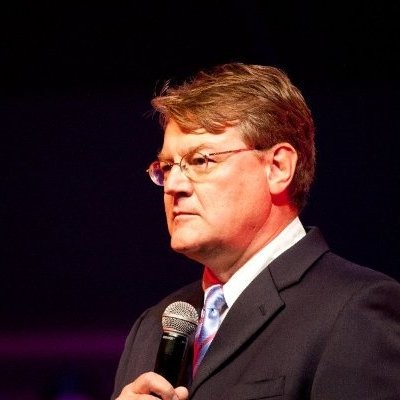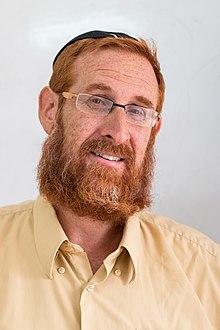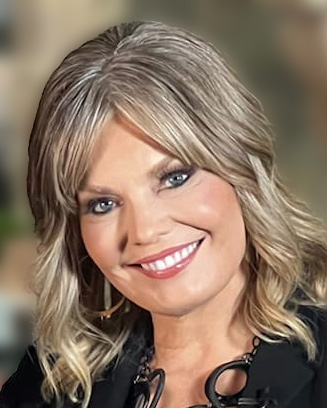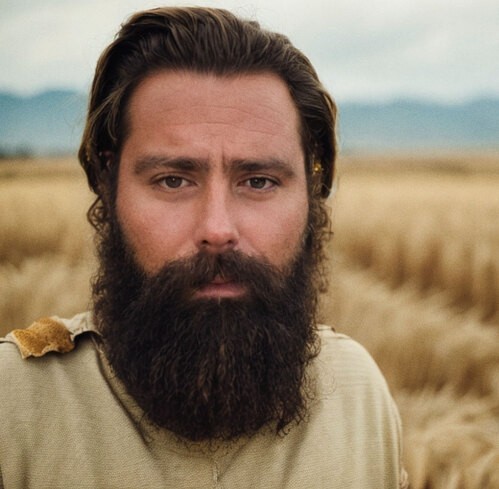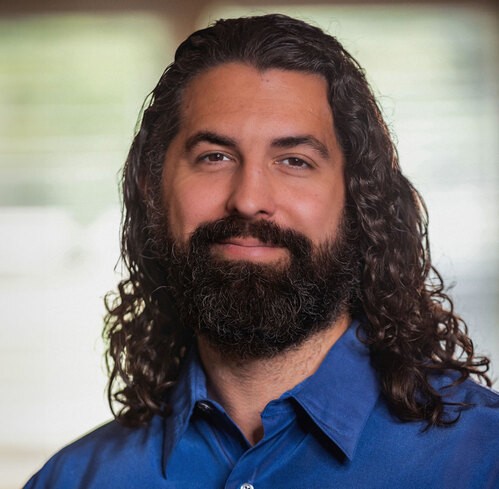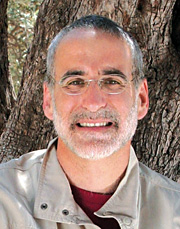Places of Worship
Solomon replaced the Tabernacle with a Temple in Jerusalem. Babylonians destroyed it as Jeremiah prophesied. Post-exile Temple also fell to the Romans. Scripture hints at a future rebuilding in God’s divine plan.
Air dates: 2023-Oct-04
Production Code: 2333
Episode 2 of 10 in the series “Dateline Jerusalem”
Duration: 28:30
Year: 2023
![Closed Captioned [CC]](/pics/cc.png) Closed Captioned
Closed Captioned
Other ways to watch:

Transcript
Caption transcript for Dateline Jerusalem: “Places of Worship” (2/10)
- 00:01 ♪♪♪ male announcer: God could have chosen anywhere on earth,
- 00:13 but he chose Israel. He could have revealed his redemption anywhere;
- 00:16 he chose Jerusalem.
- 00:18 The house of the Lord might have been any place on earth;
- 00:21 he chose Mount Moriah.
- 00:24 Past, present, and future, the mountain of the Lord has been
- 00:28 a beacon of hope and remains a strategic site for the next
- 00:32 temple of God.
- 00:35 “Dateline Jerusalem: The Coming Temple.”
- 00:41 David Hart: We are so glad you’ve joined us today,
- 00:43 and this is a special program for me and Kirsten because we
- 00:47 love to lead worship.
- 00:49 Maybe like it was back in the day,
- 00:50 I don’t know.
- 00:52 Caleb Colson: It’s very interesting back in the day with
- 00:53 the mishkan, the tabernacle, and the temple.
- 00:56 The tabernacle of David, you’ve probably heard,
- 00:57 he started with all the musical instruments and the
- 01:01 accoutrements of a temple in which they praised
- 01:02 and worshiped God.
- 01:04 But it’s very important to remember that every single
- 01:06 article and practice of the temple always pointed
- 01:08 to a future Savior, Yeshua, that would come.
- 01:11 Joshua Colson: That’s right.
- 01:12 And it was everything intentional, like he said.
- 01:14 Nothing was done by happenstance,
- 01:16 everything was created by the Father to point to him.
- 01:20 Kirsten Hart: Can I also say what’s very intentional is the
- 01:22 fact that we have the two of you here.
- 01:24 Some people, some of you, might be–had to take a break from
- 01:27 “Our Jewish Roots,” how dare you?
- 01:29 But we have wonderful new teachers on set: Joshua and
- 01:32 Caleb, you are both here.
- 01:35 And throughout the series, Dr. Seif is teaching in Israel.
- 01:38 We’re thrilled to have you, we’re thrilled
- 01:40 to have Dr. Seif also.
- 01:41 David: Let’s go to Jerusalem right now.
- 01:45 Dr. Jeffrey Seif: There’s a whole lot of history behind me,
- 01:48 a whole lot.
- 01:50 Now, in the distance, if you really look close,
- 01:53 you’ll see a golden roof.
- 01:54 Well, that mosque was built in 691 AD by Marwan.
- 01:59 That’s a new kid on the block.
- 02:01 And by the way, the block that that house is on
- 02:03 is the temple site.
- 02:05 But that’s the new kid.
- 02:06 You’re saying, “Jeffrey, 691 AD doesn’t sound very new to me.”
- 02:10 That’s right, because you’re not looking at a span of history.
- 02:12 You’re just looking at your own history.
- 02:14 I mention that because when you open up the Bible,
- 02:16 you go back thousands of years, and there’s a story associated
- 02:21 with the securing of that real estate on the Temple Mount.
- 02:24 You might recall in the days, if you’re a reader of Samuel,
- 02:28 how David beckoned individuals to find a way up to take on the
- 02:32 Jebbusi, the Jebbusites.
- 02:35 And they had good success. The Mount was secured.
- 02:38 Bible readers learn about David’s enthusiasm for taking
- 02:42 the city, and then for building a house.
- 02:45 However, his son Shlomo, or Solomon,
- 02:50 was the one tasked with that.
- 02:52 So much of the Bible deals with securing real estate and
- 02:56 building a house.
- 02:57 Now, evangelicals in so many ways ’cause we’re more tethered
- 03:01 to language like our personal relationship with Jesus,
- 03:05 you know, house and space and sticks
- 03:07 and bricks doesn’t matter.
- 03:09 But we shouldn’t assume that so much when we’re reading
- 03:11 the Bible, ’cause it really did.
- 03:14 There are some 50 chapters in the Bible that talk about the
- 03:17 sanctuary and the centrality of it.
- 03:21 It’s woven throughout the tapestry of the literature.
- 03:26 People today say, “Well, you know, it doesn’t matter.”
- 03:29 I liken it to, and I explain the significance of it,
- 03:33 using the illustration of a turtle.
- 03:36 When people speak of a turtle, individuals usually think of a
- 03:40 shell, but rather the shell is the house.
- 03:42 The turtle is the living organism inside of it.
- 03:46 When you look at religious space,
- 03:47 sticks, and bricks, it’s a house but there’s something
- 03:50 alive in it.
- 03:51 Certainly in the case of God’s house.
- 03:53 His presence was there, and talk about life,
- 03:55 that’s life everlasting.
- 03:57 Here, looking at the dedication of the first one,
- 03:59 and I’m looking at the book Melachim,
- 04:01 or Kings, what we call 1 Kings, and I’m interested in chapter 8,
- 04:05 the last part of verse 13 where he says in Hebrew–
- 04:09 [speaking in Hebrew]
- 04:13 This is gonna be a house that, to use the Hebrew,
- 04:16 “was a place for Your dwelling,” for God’s
- 04:18 dwelling, “forevermore.”
- 04:21 You know, when we come into temple talk in the Hebrew Bible,
- 04:26 we keep bouncing into this word “olam,”
- 04:28 you know, “forever.”
- 04:30 Forever.
- 04:31 And with the inauguration of this physical plant.
- 04:35 When I say “this one,” there was a precursor to it,
- 04:38 the mishkan, this portable worship center
- 04:40 in the wilderness.
- 04:41 And by the way, as they were moving around the wilderness,
- 04:44 the mishkan was set up, the tabernacle was set up,
- 04:49 and the tribes knew where they were gonna camp by virtue of
- 04:52 their placement or their compass points associated
- 04:55 with the tabernacle.
- 04:56 It was central, physically, geographically, for them.
- 05:01 Not only that, then, you know, the tabernacle moves into Canaan
- 05:03 and falls into disuse with backsliding,
- 05:06 but David is enthusiastic for the Lord and his son,
- 05:08 Solomon, follows suit, at least initially,
- 05:10 to build a house which eventually is felled because
- 05:13 of sin and circumstance.
- 05:15 You know, while God does dwell in the sanctuary,
- 05:19 should the people there turn away,
- 05:21 then God’s gonna move out of the house.
- 05:23 In fact, we see that.
- 05:25 We see that in early Genesis, it’s the story of the Lord sent
- 05:29 Adom and Chavah out.
- 05:31 If you look at Ezekiel, there’s the picture there of God
- 05:34 on his throne, his merkava, the throne.
- 05:38 And it’s explicit in Ezekiel that he gets up and leaves.
- 05:41 He heads out of Dodge, just because of the sinfulness.
- 05:44 But then, Ezekiel predicts that he’s gonna return one day.
- 05:49 Could it be, friends, that we are living in the day of a mass
- 05:54 return of one that comports with Ezekiel’s sensibilities?
- 05:58 And when we look at the return that is spelled out in Ezekiel,
- 06:01 I think it’s important to look at the house that’s noted
- 06:04 in Ezekiel.
- 06:05 There’s chapter after chapter after chapter.
- 06:08 Well, friends, we’re living at a point today where there’s an
- 06:10 interest in rebuilding that house,
- 06:12 and this is a story we’re pursuing in this series,
- 06:15 among other things, as we look at “Dateline Jerusalem.”
- 06:21 announcer: To find out more about the history of the temple,
- 06:23 we journey to Timna in Southern Israel.
- 06:26 Here in the desert-like terrain, a full-size replica of the
- 06:29 tabernacle, the mishkan, has been built,
- 06:32 foreshadowing in many ways what would come later in the temple.
- 06:36 To know the patterns given to Moses in the tabernacle is to
- 06:39 better understand the patterns and purpose of the temple.
- 06:42 On future programs in this series,
- 06:43 we’ll be given a tour inside the tabernacle.
- 06:46 But right now, we’ll hear from Ariel Simms,
- 06:48 a follower of Yeshua, who will guide us through a short history
- 06:51 of this Timna meeting and explain its importance as a
- 06:54 place of atonement.
- 06:56 Ariel Simms: So, they traveled through the desert
- 06:58 for 40 years, we know that.
- 06:59 But even after those 40 years, they had arrived at a place
- 07:02 called Shiloh, just north of Jerusalem,
- 07:04 and sat there in Shiloh for about 370 years until King David
- 07:09 moved it to Jerusalem.
- 07:10 Sat in Jerusalem another 70 years until King Solomon built
- 07:14 the first temple– so about 480 years total.
- 07:17 And the book of Numbers describes all the groups and
- 07:20 families that the Levites were divided into,
- 07:22 and it says exactly how many men from each of these groups helped
- 07:25 to carry the tabernacle.
- 07:26 If you punch the numbers in the calculator,
- 07:28 it adds to a pretty precise number of 8580 men who,
- 07:33 for 40 years, had to repeatedly take it apart,
- 07:36 rebuild, again and again, until they arrived at Shiloh.
- 07:39 The priests were ordained by God to offer up
- 07:42 all these different sacrifices.
- 07:44 The high priest being chosen by God;
- 07:47 Aaron the brother of Moses and his sons
- 07:50 were the regular priests.
- 07:51 So the high priest, he had the most important role of offering
- 07:54 the atonement sacrifice on Yom Kippur,
- 07:56 the Day of Atonement, and then the regular priests who did all
- 07:59 of the other sacrifices throughout the year.
- 08:01 ♪♪♪
- 08:06 Ariel: So you’ve got three sections of the compound
- 08:09 of the tabernacle.
- 08:10 First section is where we are out here.
- 08:12 This is called the courtyard in which only the tribe of Levi
- 08:15 were allowed to enter in.
- 08:16 So, not even the regular Israelites could come in.
- 08:18 They could only bring their animal up to the front gate.
- 08:21 Then the tent itself was divided into two more sections:
- 08:24 the Holy in which only the priests could go in,
- 08:26 and then the Holy of Holies in which only the high priest could
- 08:28 go in on the Day of Atonement, on Yom Kippur.
- 08:32 The Israelites would bring their animal,
- 08:34 their sacrifice, up to the gate and the priest would take the
- 08:37 animal, slaughter it, sacrifice it.
- 08:40 The altar was made of acacia wood,
- 08:43 covered in gold, and you can see all around here a whole bunch of
- 08:46 acacia trees that grow around–
- 08:48 out here in this environment.
- 08:50 It’s the crooked and thorny trees.
- 08:52 So it was made of acacia wood.
- 08:53 In Hebrew it’s called shittah, or shittim for plural,
- 08:57 but it was covered in copper.
- 08:59 It was overlaid with copper and they would carry it,
- 09:01 I mean, not just the altar, but the entire tabernacle had to be
- 09:04 carried through the desert.
- 09:05 And inside the altar was the eternal fire that God started
- 09:09 when they first built the tabernacle,
- 09:11 but it was up to the Levites to make sure
- 09:13 the fire kept burning continuously.
- 09:15 So they were never allowed to let that fire burn out.
- 09:18 And they made all these sacrifices in there every day,
- 09:21 hundreds of times a day, depending on,
- 09:23 again, the type of sacrifice.
- 09:24 There was the daily burnt offering,
- 09:26 there was the thanksgiving offering,
- 09:27 the peace offering, and so on.
- 09:28 But yeah, they would slaughter the animal,
- 09:30 they would sacrifice it, they would take the blood of the
- 09:33 animal and place it on–or sprinkle it on the horns of the
- 09:36 altar, one on each corner.
- 09:38 I don’t–I don’t know if the Bible says that they had to use
- 09:41 any specific type of wood to keep the fire burning,
- 09:44 but I–but they had to keep it burning continuously,
- 09:46 all the time.
- 09:47 Even when they traveled, the fire was never allowed
- 09:49 to be put out.
- 09:50 They didn’t carry the altar with the fire burning inside of it.
- 09:53 When they traveled, they would either take the coals outside
- 09:55 and carry it in a separate box, or possibly light torches and
- 09:59 later use those same torches to relight the fire.
- 10:01 They were just not allowed to light a new fire.
- 10:04 And that same fire kept burning all the way through
- 10:06 the destruction of the first temple, built by Solomon.
- 10:09 When the Babylonians destroyed the temple,
- 10:10 that’s when the fire went out for the first time.
- 10:13 So, it lasted over 600 years, that fire.
- 10:16 The copper wash basin, made of pure copper and it was the only
- 10:21 item that God did not give any instructions for its dimensions.
- 10:24 So the Bible doesn’t list any measurements,
- 10:26 not the shape or size or weight.
- 10:28 We don’t know if it was wider or taller, maybe a square.
- 10:31 We don’t know.
- 10:33 But we know that it was made of pure copper and made from the
- 10:36 mirrors of the women, women that donated their mirrors,
- 10:39 polished copper, to make the wash basin.
- 10:41 So it’s very likely that the priests saw their own reflection
- 10:44 when they looked in the washbasin.
- 10:46 They didn’t wash their hands like this,
- 10:48 like we would today in a sink, ’cause then it would have filled
- 10:50 up with blood and dirt.
- 10:51 Instead, they would scoop the water outside and would wash
- 10:54 their hands and their feet outside of the wash basin.
- 10:57 They had to do that before making any sacrifice or before
- 11:00 going into the tent for any reason.
- 11:02 Ariel: So there were many changes made between
- 11:05 the tabernacle and the temple, and even between the first and
- 11:07 second temples, lots of changes.
- 11:09 It was completely rebuilt, but the overall layout stayed
- 11:12 the same.
- 11:13 The overall layout of the courtyard,
- 11:14 the Holy, the Holy of Holies, the altar,
- 11:16 the wash basin, the items inside the tabernacle which later
- 11:19 became the temple.
- 11:21 ♪♪♪
- 11:27 Kirsten: Okay, so here’s a question.
- 11:28 1984, how old were you?
- 11:31 Joshua: Old enough to remember it.
- 11:32 Caleb: One year.
- 11:34 Kirsten: Ohh!
- 11:35 Okay, I’ve got to say, in 1984 I lived in New Jersey,
- 11:38 I know you guys grew up in the East too.
- 11:40 And I remember in Princeton, New Jersey,
- 11:42 it was the year of Olympics in Los Angeles,
- 11:45 they had the Olympics.
- 11:46 And I saw the torch running through the streets
- 11:49 of New Jersey.
- 11:50 I saw that, and I thought it was so fascinating it came all the
- 11:52 way from Greece.
- 11:54 Ariel, at the tabernacle, was just saying that that flame
- 11:59 with that–in the big basin, right, went for 600 years
- 12:05 and it never went out.
- 12:07 Caleb: Well, what’s amazing about it,
- 12:09 it was the foreshadowing of the Ruach HaKodesh,
- 12:11 the fire that appeared on the head of the disciples
- 12:14 on the Day of Pentecost, Shavuot.
- 12:16 And that fire should be continually burning in our
- 12:18 hearts ’cause our bodies are the temple now,
- 12:20 the tabernacle or the mishkan.
- 12:22 Joshua: A lot of times, in church today,
- 12:24 we hear songs and messages directed towards reigniting
- 12:26 a new fire in us.
- 12:28 And we kind of look to God and we say,
- 12:30 “Hey, the original fire you gave me, it isn’t enough.
- 12:32 I need something new,” and we pass that buck to him.
- 12:34 But the responsibility is on us.
- 12:36 How do we keep that fire burning?
- 12:38 By tabernacling with him.
- 12:40 By us making the time with him to keep that fire alive.
- 12:43 Just like the Levites did for 600 years.
- 12:45 Caleb: That’s right.
- 12:46 And God’s gonna tabernacle with us one day
- 12:48 for a literal 1000 years.
- 12:51 But right now, the veil between us and the Holy of Holies
- 12:54 has been rent in two.
- 12:55 There’s nothing keeping us from going out.
- 12:57 God always meant for his tabernacle to be on the move
- 13:00 and for us to try to get unbelievers into the church
- 13:03 is opposite to what Jesus intended
- 13:05 when he said it was finished.
- 13:07 But guys, now we’re gonna go back to Israel to Jeff to hear
- 13:09 more about this tabernacle story.
- 13:14 Caleb: The Western Wall, or Kotel, is recognized as one of
- 13:18 the most revered sites in all the Holy Land.
- 13:20 It’s one of the last remaining walls of the Temple Mount,
- 13:23 supporting an elevated plaza above that served as the site
- 13:26 of Solomon’s temple and Herod’s temple.
- 13:29 Further south, beyond the area now revered by worshipers,
- 13:32 there’s a sad testament of the Roman destruction
- 13:34 in 70 AD of the second temple, Herod’s temple.
- 13:38 Dr. Seif continues now from the ruins of that temple with a look
- 13:42 at Jeremiah’s prophetic reference to destruction
- 13:44 and restoration.
- 13:47 Dr. Jeffrey Seif: When I look at the prophet Yirmeyahu,
- 13:49 Jeremiah, who gave voice to a great destruction,
- 13:52 when I look at Jeremiah text which is what I wanna do here,
- 13:56 there’s what I refer to as a destructive and constructive
- 13:59 edge to his prophecies.
- 14:01 The Lord says, “Look, I’ve appointed you as a prophet:
- 14:07 to uproot, to tear down, to destroy,
- 14:09 to overthrow, to build, and to plant.”
- 14:12 Now, he had some harsh words, words that spoke to,
- 14:16 for, and about the stones round about–
- 14:19 that is, the destruction of the capital city in his day.
- 14:22 He saw it coming.
- 14:24 He saw it looming over the horizon,
- 14:25 but he didn’t just see that.
- 14:28 He saw also building, livnot in Hebrew.
- 14:32 And he also saw planting–
- 14:34 [speaking in Hebrew]
- 14:36 He sees a new world dawning against a backdrop
- 14:40 of troubled times.
- 14:42 This is noted as well, beautifully,
- 14:45 later in the Jeremiah text.
- 14:48 And I wanna alight upon a text here–
- 14:52 [speaking in Hebrew]
- 14:54 It’s noted in Jeremiah but it’s all over the Psalms:
- 14:59 “his love endures forever.”
- 15:03 So the God who brings about judgment also brings about
- 15:07 restoration, ’cause that’s what’s in his heart.
- 15:11 Jerusalem was destroyed, the temple was felled.
- 15:16 Jeremiah said in the 7th chapter,
- 15:18 “Don’t be deceived by these deceptive words.
- 15:20 This is the temple of the Lord, this is the temple of the Lord.”
- 15:24 Because as Ezekiel had predicted elsewhere,
- 15:26 the Lord was going to leave the house.
- 15:28 But he’s returning. He’s returning.
- 15:31 So you have that departure and the returning noted in Jeremiah
- 15:34 and Ezekiel and we have the returning noted today,
- 15:38 which is why I’m sitting amidst a pile of rocks that speak of
- 15:42 devastations of yesteryear, but round about me are throngs
- 15:45 of thousands.
- 15:47 There’s a celebratory spirit here.
- 15:49 Why is that?
- 15:50 Because we’re in the midst of a returning.
- 15:53 It’s happening today and, with the return of people to the
- 15:56 nation state, there’s the return of the temple and interest in
- 16:01 resurrecting religious life per the Older Testament
- 16:05 that speaks of sacrifice.
- 16:06 Well, here, to hear Jeremiah as he speaks with enthusiasm:
- 16:11 “Yet again,” he says in 33:10, “in this place–
- 16:15 which you were saying is a waste,” and so it is.
- 16:19 You’re looking at waste.
- 16:20 He says, “In the cities of Judah and in the streets of Jerusalem
- 16:25 the desolate, without man, without inhabitant,
- 16:27 without beast–there will be heard the voice of joy
- 16:31 and the voice of gladness.”
- 16:33 Now, by the way, a lot of times when you make TV
- 16:35 you want quiet and–but we’re not filtering out any noise.
- 16:38 Actually, it gets a whole lot noisier as you make your way
- 16:41 around and it’s all celebratory.
- 16:44 It says it as much in the literature here.
- 16:46 He says, “We’re surrounded by waste but the voice will return.
- 16:51 There’ll be heard the voice of joy,
- 16:53 simcha, the voice of gladness, the voice of the bride and groom
- 16:58 who say: ‘Give thanks to Adonai-Tzva’ot,
- 17:02 give thanks to the Lord of Hosts,
- 17:04 for Adonai is good, for the Lord is good.'”
- 17:06 And then–
- 17:08 [speaking in Hebrew]
- 17:10 His mercy endures forever!'”
- 17:14 David: The joy and exuberance over the fallen city is
- 17:17 especially evident in an event held annually during the Feast
- 17:21 of Tabernacles when thousands from around the world march
- 17:24 through the streets showing their respect and support for
- 17:27 the city of the Great King.
- 17:29 David Parsons is vice-president of the International Christian
- 17:32 Embassy, Jerusalem, the organization
- 17:35 that sponsors the event.
- 17:37 We asked him why he thought Jerusalem and the Temple Mount
- 17:39 were so important in the Lord’s sovereign plan.
- 17:43 David Parsons: The temple area,
- 17:45 the mountain is called the Mountain of the Lord in the
- 17:49 Bible, Zion, it played such an incredible role in the history
- 17:56 of this city and of biblical faith, biblical history.
- 18:00 It’s quite clear when Solomon builds it and dedicates it,
- 18:04 he says, “God, you didn’t choose any city in all the land for
- 18:11 this purpose, but you chose my father,
- 18:13 David, because of what was already in his heart.”
- 18:16 And I think it’s a lesson for all of us who love
- 18:18 and follow God.
- 18:20 What’s in your heart to do for him.
- 18:22 David’s heart was to build the house of the Lord here
- 18:24 in this city.
- 18:26 And Solomon was able to carry out that work, and
- 18:29 from that moment,
- 18:31 Jerusalem gained this universal significance.
- 18:36 David: The fame of it went everywhere to where even today,
- 18:40 like, you have the Royal Family in Britain getting married,
- 18:44 they sing a hymn.
- 18:45 The peak of the marriage service is the hymn,
- 18:49 “O Jerusalem,” and it’s a bit of a replacement theology,
- 18:53 “Let London and this fair land become like Jerusalem
- 18:56 and Zion and such.”
- 18:58 But you wouldn’t be singing these things if God hadn’t
- 19:02 already made this city such a center for worship and it was
- 19:06 called to be this house of prayer for all peoples,
- 19:10 according to Isaiah.
- 19:12 Jesus affirmed this.
- 19:14 David: As Christians, there’s no city like it.
- 19:16 It’s the only city in the Bible that is called Holy.
- 19:21 Holy, meaning it’s set aside for a particular purpose
- 19:25 where God’s–it’s like the stage where God’s love for all men has
- 19:30 played out here.
- 19:33 Caleb: “Now, it shall come to pass in the latter days that the
- 19:36 mountain of the Lord’s house shall be established on the top
- 19:39 of the mountains.
- 19:40 It shall be exalted above the hills,
- 19:42 and all the nations shall flow to it,
- 19:45 for out of Zion shall go forth the law,
- 19:48 and the Word of the Lord from Jerusalem.”
- 19:50 Former Knisset member, Yehuda Glick.
- 19:54 Yehuda Glick: Many times, people speak about Christian
- 19:56 Zionists and there, they’re referring to Christians who
- 20:00 support the return of Jews to Israel.
- 20:03 And that’s something very blessed and very important and
- 20:06 we’re very–we don’t take that for granted and we appreciate it
- 20:09 very much.
- 20:11 But now, I think we’re timed for the next step.
- 20:13 We’re timed for Zionism next-generation.
- 20:16 And what do I mean by this? You know, there’s tourism.
- 20:20 Tourism talks about tourists. There’s journalism.
- 20:24 Journalism talks about journalists.
- 20:26 So Zionism has to talk about Zion.
- 20:28 When we talk about Zion in the Bible,
- 20:31 the Bible says that Zion is the name of the holy mountain
- 20:34 of God.
- 20:35 Psalm 2, Joel, “Zion, my holy mountain.”
- 20:39 Jerusalem is called the city of Zion.
- 20:40 It’s the city where Zion is.
- 20:42 What does Zion mean?
- 20:44 In Hebrew, the verb–
- 20:45 [speaking in Hebrew]
- 20:47 to point.
- 20:49 The noun is tsiyyon, Zion.
- 20:52 This is the place that God pointed and said,
- 20:54 “This is the place that I mark as the place where my divine
- 20:59 name, my divine presence, rests here.”
- 21:02 And the call is not for Jews to go there.
- 21:05 The call is for all nations to go there,
- 21:07 because when God promises to Abraham that he’s gonna bless
- 21:10 him, and he’s gonna make his name so great and he’s gonna
- 21:12 bless those that bless him, he says there’s a purpose:
- 21:15 “I want you to serve as a source of blessing for all nations.”
- 21:18 What does it mean to serve as a source of blessing
- 21:20 to all nations?
- 21:21 We are to teach all nations to raise the banner of HaShem,
- 21:25 God Almighty, on the place that he chose.
- 21:28 House of prayer for all nations, from Zion goes out Torah and the
- 21:33 Word of God from Jerusalem.
- 21:36 Caleb: The Jews were always called to be a light unto the
- 21:38 Gentiles, but how often do you seriously see a Jewish person
- 21:41 on the street corner with a sign, “The end is near”?
- 21:44 It doesn’t happen.
- 21:45 But that’s where the confusion lies with even Christians and
- 21:48 Jews concerning the coming temple.
- 21:50 There’s many temples to come.
- 21:52 I got the opportunity to sit down with Mark Hitchcock and
- 21:54 he’s gonna unravel all the mysteries behind the many
- 21:57 temples in history and the ones to come.
- 22:01 Caleb: Thanks for being with us, Mark.
- 22:03 It’s interesting to look back all the way from Eden,
- 22:05 God’s desire was always to tabernacle with man.
- 22:09 When he came in the form of Yeshua,
- 22:11 he was called Emmanuel, God with us.
- 22:13 And through the tabernacle and the temples,
- 22:15 God’s always trying to reach out,
- 22:16 get that face-to-face communication back with mankind.
- 22:19 What do you see in the future?
- 22:20 What does God do to try to restore that relationship with
- 22:23 man in prophecy?
- 22:25 Mark Hitchcock: Well, yeah, it really,
- 22:26 when you look at the Bible, there are seven temples.
- 22:28 Count the seven temples of history and prophecy.
- 22:32 There were two temples in the Old Testament.
- 22:34 We had the–Solomon’s temple, that was destroyed by the
- 22:36 Babylonians in 586.
- 22:38 Then Herod’s temple.
- 22:40 It was started by Zerubbabel and others,
- 22:42 but Herod finally embellished that temple.
- 22:44 Fascinating fact, you know, it was finally finished in 64 AD,
- 22:48 with all the embellishments, and it was destroyed 6 years later,
- 22:51 in 70 AD.
- 22:52 So after that, you know, during this church age,
- 22:55 God has three temples.
- 22:57 So there’s three present temples.
- 22:58 The individual believer’s body is a temple,
- 23:00 you know, Paul says in 1 Corinthians,
- 23:02 you know, 6:19, “Don’t you know that you’re the temple
- 23:04 of the Holy Spirit?”
- 23:05 But also the local church.
- 23:07 Each local church is called the temple of the Spirit
- 23:09 in 1 Corinthians 3.
- 23:11 But then the whole church, the whole body of Christ on Earth,
- 23:14 in Ephesians 2, at the end of the chapter,
- 23:16 the whole church is indwelled by the Holy Spirit
- 23:19 at any given time.
- 23:21 So you have two past temples, these literal temples on Earth,
- 23:24 and three present temples.
- 23:25 But there’s two future temples.
- 23:27 There’s gonna be what we often call the Tribulation temple or
- 23:30 the Antichrist temple.
- 23:32 It’s gonna be built during the Tribulation period and gonna
- 23:34 be on Earth during that period of time.
- 23:36 And, you know, we know that’s gonna be built because,
- 23:38 like, in 2 Thessalonians 2:4 it says: “The Antichrist is gonna
- 23:41 sit in the temple of God and declare that he is God.”
- 23:45 So there’ll be a temple present on the earth during that time,
- 23:47 the third temple.
- 23:48 But then when Jesus returns back to Earth,
- 23:51 he comes back to rule and reign and the earth goes through an
- 23:53 incredible restoration, there’s gonna be a fourth Jewish temple,
- 23:57 but we often call that the Millennial temple,
- 23:59 that’s described in a lot of places but,
- 24:00 really, most in detail in Ezekiel 40 to 48
- 24:03 in those chapters.
- 24:05 So, you know, we’ve got two past temples,
- 24:07 three present temples, and then those two future temples,
- 24:10 and Messiah’s gonna ultimately come and dwell in that
- 24:12 Millennial temple and rule and reign there for 1000 years.
- 24:15 Caleb: Amen. Thank you, Mark.
- 24:18 Caleb: Mark just gave a fascinating explanation
- 24:21 regarding all the temples throughout history,
- 24:23 even the future temples and, if you want to learn more about
- 24:26 prophecy, we’re giving you this book,
- 24:28 “The End,” written by Mark Hitchcock to those who give a
- 24:31 donation of blessing to us.
- 24:32 We wanna bless you in return.
- 24:33 We even have these bookmarks.
- 24:35 Josh and I wrote down Scriptures that’ll be an encouragement
- 24:37 to you, all a gift of love.
- 24:40 Kirsten: It is a gift of love,
- 24:41 but I want–I want you to know it costs this ministry a lot of
- 24:45 money, shipping, and to buy these books.
- 24:48 We–I would like to throw the word out,
- 24:51 “generous,” if you don’t mind, a generous donation for the book
- 24:54 but also a donation to keep this ministry,
- 24:58 this television program, going around the world.
- 25:02 We are a prophetic voice going out.
- 25:05 Please make sure that this voice does not go out.
- 25:09 Guys, you have brought so much to this program just alone.
- 25:12 Thank you.
- 25:13 Caleb: Oh, you’re welcome.
- 25:14 I keep on going back to what Yehuda Glick said,
- 25:17 that Scripture.
- 25:18 “My house will be called a house of prayer for all nations.”
- 25:20 They’re expecting that to be the next temple,
- 25:22 but in all honesty, as Mark said,
- 25:24 the next temple is the Tribulation temple and while the
- 25:27 Jews are worshiping God there, there’s gonna be a revived
- 25:30 Babylonianism worship for the world.
- 25:32 The beast is gonna be leading that.
- 25:33 There’s gonna be apostasy and terrible things going on.
- 25:36 It’s not until Yeshua comes that that fourth temple that is
- 25:40 prophesied in Isaiah will come to pass.
- 25:42 Joshua: With everything we talk about in prophecy,
- 25:44 these moments, it can be dangerous for us to look at
- 25:48 history and look at the Bible through the lens
- 25:50 of how it applies to us.
- 25:51 Dr. Seif mentioned that.
- 25:53 We need to ask the Father, “How does your Word apply to you
- 25:56 and to your plan?”
- 25:58 He has placed you here for such a time as this.
- 26:01 But that timing that he has for you is for his purpose and his
- 26:04 plan and he wants to tabernacle with you.
- 26:08 So put your focus on the Father and allow him to guide your
- 26:12 understanding of his Word based on his premises
- 26:14 and not your own.
- 26:16 David Hart: Hm, so much content in this program today,
- 26:18 but I wanna go back real quick to the beginning of you guys
- 26:21 sharing about that flame that needs to stay alive forever.
- 26:24 I want that in my life in our–
- 26:26 in my worship and that’s how we live.
- 26:28 Caleb: And it’s a free gift.
- 26:29 Yeshua said, “All you have to do is ask that you may receive.”
- 26:32 Just as we asked for salvation like a little child,
- 26:35 we can ask and receive from him that power,
- 26:37 that authority, to cast our devils,
- 26:39 heal the sick, and do many wonders in his name.
- 26:42 It’s all at your fingertips.
- 26:43 It’s all your authority through Yeshua.
- 26:45 David: It’s time to go, guys. It’s been good today.
- 26:47 We end with this.
- 26:48 Joshua: Always seems like it goes so fast.
- 26:50 But as we always say: “Shaalu shalom Yerushalayim.”
- 26:54 Kirsten: Pray for the peace of Jerusalem.
- 26:58 David: Our resource this week,
- 26:59 “The End,” written by Mark Hitchcock.
- 27:02 This 500-page hardcover book is made available to you for your
- 27:05 generous donation to Zola Levitt Ministries.
- 27:08 The accompanying bookmark by Joshua and Caleb provides
- 27:11 important Scripture from God’s Word concerning the end.
- 27:14 Please remember we depend on your generous gifts which allow
- 27:18 us to bring timely updates regarding Bible prophecy
- 27:20 and the end of days.
- 27:22 Thank you so much for your continuous support
- 27:24 of this ministry.
- 27:27 David: Join us right now on our social media sites
- 27:30 for exclusive content.
- 27:32 Visit our website, levitt.com, for tour information,
- 27:35 broadcast schedule, free monthly newsletter,
- 27:38 and online store.
- 27:40 Call us anytime at 1-800-WONDERS,
- 27:42 and ask about this week’s resource.
- 27:45 “Our Jewish Roots” is a presentation
- 27:47 of Zola Levitt Ministries.
- 27:49 Partner with us.
- 27:50 As a 100% viewer-funded ministry,
- 27:53 your gifts allow us to bring you our weekly television series,
- 27:56 social media outlets, website, and other ministry endeavors.
- 28:00 Please remember we depend on tax-deductible donations
- 28:03 from viewers like you.
- 28:05 ♪♪♪
- 28:09 ♪♪♪
- 28:19 ♪♪♪


